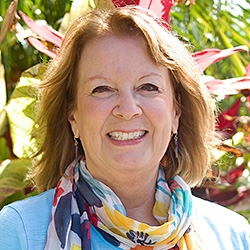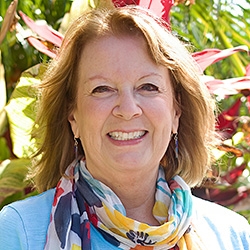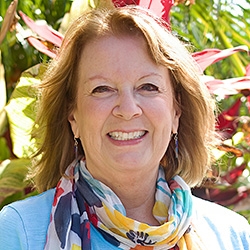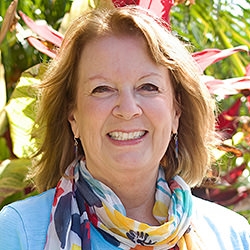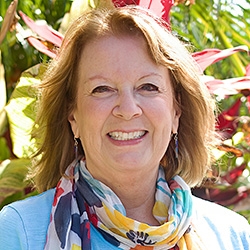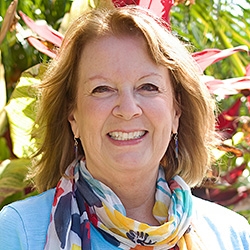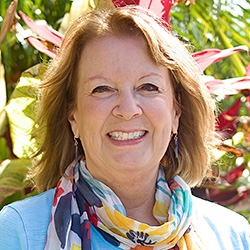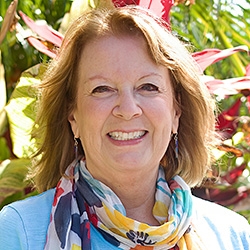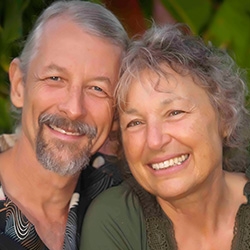
Search Results: limits
-
- Learn concrete tools for engaging with others as you embrace individual and collective liberation
- Find your own source of choice even in the face of challenges
- Release the constriction of scarcity
- Find an empowered option to respond to what is happening in our world
- Open the door to the possibility of thriving rather than merely surviving
-
Trainer Tip: Instead of trying for perfection, let’s try safe experimentation: Acknowledge that whenever we try a new behavior, it’s bound to take us a few times before we get it right. Read on for how we can do this. We'll use learning empathy as an example.
-
Trainer Tip: There's often a large gap between what we experience, and the story we make up about it. Noticing how our judgments and assumptions cloud our observations can be critical to creating a connection with others and maintaining a Nonviolent Communication consciousness.
-
- Tune into your self-dialogue with a compassion that supports loving presence
- Shift limiting beliefs about your parenting patterns so you can choose consciously
- Transform frustration, confusion, or guilt into constructive, honest discussions
- Foster your ability to say yes and no in a way that supports your natural limits
-
Trainer Tip: Do you ever feel certain that other people see things the way you do, only to find out they don’t? Read on.
-
I want to report that after writing last month’s Growing Roots letter, I did indeed employ my tried-and-true method of moving past inertia: First step time limits. In doing so, I made progress on planting my vegetable garden.
-
Roxy Manning discusses the need to expand our understanding of observations within Nonviolent Communication (NVC). She challenges the idea of objective observation, noting its limitations, and introduces internal observations, citing personal experiences to illustrate their influence on emotions and self-perception. Additionally, she emphasizes systemic awareness as a crucial aspect of observation, highlighting its importance in understanding broader societal issues. Overall, Roxy advocates for a comprehensive approach to observations in NVC, incorporating external, internal, and systemic perspectives to foster inclusivity and empathy.
-
- Discover what is yours to do in response to our global crises
- Weave nonviolence more deeply into how you live and lead
- Receive ongoing support in how to be effective and alive while pursuing your highest goals
- Increase your capacity to face and mourn current reality as a source of greater choice and energy
- Be a part of transforming the legacy of scarcity, separation, and powerlessness into a livable future
-
- Discover what is yours to do in response to our growing global crises
- Weave nonviolence more deeply into how you live and lead
- Receive ongoing support within and beyond the course in how to be effective and alive while doing what’s yours to do
- Increase your capacity to face and mourn current reality as a source of greater choice and energy
- Be a part of transforming the legacy of scarcity, separation, and powerlessness into a livable future
-
Ask the Trainer: "A participant in our beginners' NVC practice group asked the co-facilitators if there was a confidentiality agreement that was typically used in NVC practice groups?"
-
Trainer Tip: If you are feeling anger, you are experiencing an unmet need. When you recognize it as a warning signal, it can be a life-serving tool.
-
NVC practice is based on several key assumptions and intentions. When we live based on these assumptions and intentions, self-connection and connection with others become increasingly possible and easy, helping us contribute to a world where everyone’s needs are attended to peacefully.
-
Trainer Tip: Mary offers 3 foundational tips for making requests: positivity, specificity and doability.
-
Trainer Tip: There are many ways to meet a need. Open to new possibilities.
-
Please join us as we take a look at what disrupts our joy during the holidays… and discuss the delicious possibilities that abound when we declare our intention to "Greet the Holidays with an Open, Joyful Heart."
-
Trainer Tip: In Nonviolent Communication, we consider love to be a need. Remember that needs are universal; everyone has the same ones. We all need love, but the ways in which we express it can be very different.
-
Whether its pandemics, climate change, damage to the environment or other massive challenges that humanity faces, what are we to do if we can't agree on even the most basic information and knowledge? From empathic understanding we can focus on shared, universal human needs (where there is no conflict or disagreement) underlying our perceptions, and feelings. Then we can see if there are ways we can agree on to meet those needs.
-
Jim and Jori Manske went from poverty to financial independence in 8 years, and they’re making the process they used available to you! Please join them in this inspiring 8-session program to transform your relationship with money, scarcity and abundance.
-
Join Eric Bowers in transforming past relationship pain, coming alive in community and creating thriving relationships. This 12 session Telecourse recording brings together Eric's passions for Nonviolent Communication, Attachment Theory and Interpersonal Neurobiology.
-
Living Compassion, for Robert, represents the spirituality that resides in every aspect of Nonviolent Communication. Its foundational principles are represented by three primary qualities or states of being: clarity, compassion and empowerment.
In this course you’ll explore – and practice – how the unfolding of inner clarity opens your way to compassion, which further unfolds into empowerment. Throughout this unfolding process, Robert will include maps and tips for shifting your everyday life from one that is relatively limiting to a life that is both transformative, healing and liberating.


